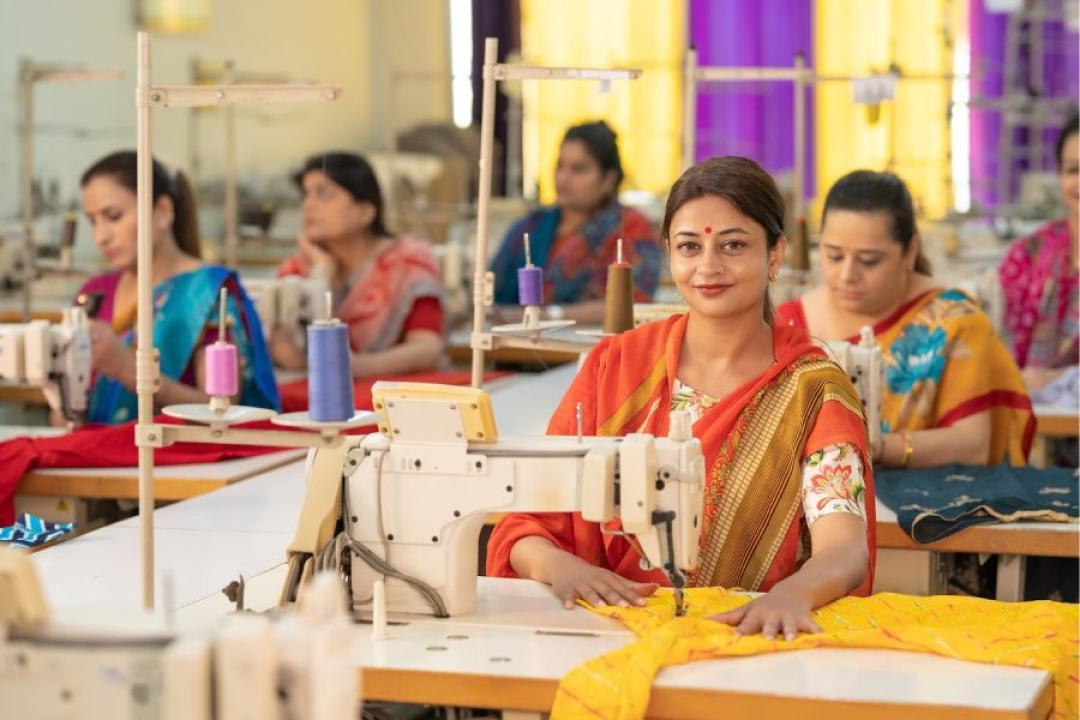The increasing number of Indian women seeking employment in Saudi Arabia is attributed to improved working conditions, comprehensive reforms, and targeted support from the Saudi government, creating a more appealing environment for female expatriates.

X/ File Pic
Key Highlights
- Over 2.4 million Indians work in Saudi Arabia, with many in private and domestic roles.
- Women-focused reforms, including safe transport and childcare, are boosting appeal.
- Saudi Arabia’s women’s unemployment rate drops to 12.8% in 2024.
Indians form the second-largest expatriate community in Saudi Arabia, and according to officials from the country's human resources and social development ministry, the "welcoming conditions" for women are increasing the kingdom's attractiveness for Indian women seeking meaningful employment.
As of 2024, there are over 2.4 million Indian workers residing in Saudi Arabia, with approximately 1.64 million employed in the private sector and 785,000 in domestic work. Bangladesh has the highest number of expatriate workers at 2.69 million.
An official spokesperson from the ministry stated that Indian workers, including women, play a crucial role in Saudi Arabia's labour market, constituting a significant portion of the expatriate workforce. "Comprehensive reforms, expanded workplace support, and investments in skills development create welcoming conditions for women from diverse backgrounds," the spokesperson remarked.
The improvement in infrastructure, such as women-only transportation and childcare support, further enhances the appeal for Indian women seeking meaningful employment. This enables them to contribute to the kingdom's growth while pursuing their professional and personal aspirations.
Regarding reports of some Indians being misled by agents and touts in India about employment opportunities in Saudi Arabia, the spokesperson assured that Saudi Arabia is committed to upholding international labour standards and has implemented extensive labour reforms to protect workers' rights.
To bolster these efforts, Saudi Arabia has formed bilateral agreements with several countries, including India, to ensure the protection of workers during recruitment. These agreements focus on information exchange, joint investigations, and capacity-building to combat forced labour.
The Musaned and Qiwa platforms allow workers to file complaints regarding wages, contract terms, or mistreatment, ensuring that these concerns are addressed and, where necessary, legal action is taken.
In response to over 11,000 lawsuits involving Indian workers this year, the spokesperson explained that the first stage of addressing labour disputes between workers and employers involves a mediation process aimed at resolving conflicts amicably or referring cases to labour courts if necessary.
The spokesperson elaborated that Saudi Arabia's advancements in supporting female employment position the kingdom as a conducive environment for success. The ministry's efforts to support and empower women in the workforce have led to a remarkable reduction in female unemployment. By the second quarter of 2024, the rate dropped to 12.8 per cent, down from 14.2 per cent in the first quarter, reflecting a 1.4 percentage point decrease and a 3.1 percentage point drop from the same period in 2023.
In recent years, Saudi Arabia has introduced various labour reforms to improve the working conditions for expatriate workers, including those from India. These reforms aim to enhance workers' rights and align policies with internationally established standards through a strong partnership with the International Labour Organization.
The Musaned platform, officially launched in 2014, facilitates a structured and transparent recruitment process through licensed agencies, guaranteeing standardised, digital contracts that ensure workers understand their rights and responsibilities. It allows workers to track wage payments, report violations, and access support services, offering 14 services to a wide range of nationalities.
The spokesperson also highlighted the Labour Reform Initiative of 2021, which has strengthened the contractual relationship between employers and expatriate workers, thereby enhancing workers' rights and access to opportunities in Saudi Arabia.
In addition to these reforms, health insurance is now mandatory for all private sector employees, ensuring access to essential healthcare services throughout their employment. There are also regulations in place for heat protection and summer working hours for all employees.
ADVERTISEMENT
(With inputs from PTI)
 Subscribe today by clicking the link and stay updated with the latest news!" Click here!
Subscribe today by clicking the link and stay updated with the latest news!" Click here!







